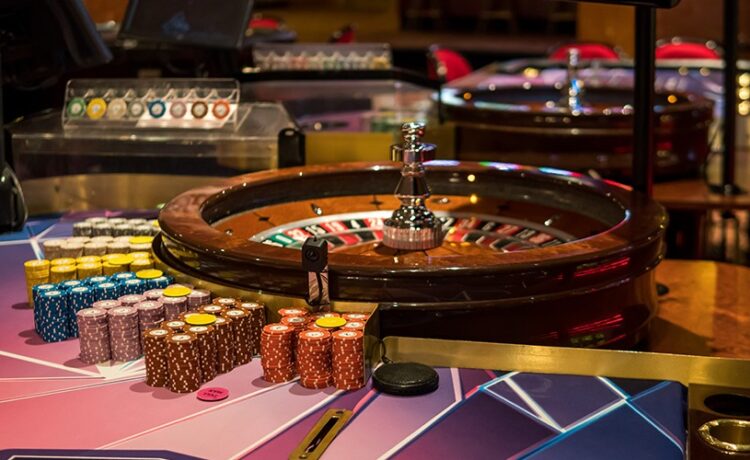The concept of gambling has been an integral part of human culture for thousands of years, evolving from ancient betting houses to the extravagant casino resorts we see today. The journey of casinos reflects the changes in society, technology, and entertainment preferences. In this blog, we will explore the history of casinos, highlight key milestones, and discuss how they have transformed into modern entertainment hubs. We will also touch on famous casinos around the world and their unique features, mentioning new online slots once to show the current trends in casino gaming.
Ancient Origins
The origins of gambling can be traced back to ancient civilizations. Archaeological findings suggest that gambling activities were prevalent in China around 2300 BC, with evidence of rudimentary dice and betting slips used in lotteries. Similarly, ancient Egyptians engaged in dice games, and Greeks and Romans participated in various forms of gambling, including betting on gladiatorial contests and chariot races.
Roman Gambling Houses: In ancient Rome, gambling was a popular pastime among all social classes. Roman soldiers would often gamble with dice, and there were even dedicated gambling houses, known as “tabernae aleatoriae.” These establishments were some of the earliest forms of casinos, providing a space for people to place bets and socialize.
The Birth of Modern Casinos
The concept of the modern casino began to take shape in the 17th century in Italy. The Ridotto, established in Venice in 1638, is considered the first government-sanctioned gambling house. The Ridotto offered a controlled environment where nobles could gamble, laying the foundation for the future development of casinos.
The 18th and 19th Centuries: During the 18th and 19th centuries, gambling houses spread across Europe. France, in particular, played a significant role in developing popular casino games such as roulette and blackjack. Monte Carlo, in Monaco, became synonymous with luxury gambling in the mid-19th century with the opening of the Monte Carlo Casino in 1863. This casino attracted Europe’s elite and set the standard for opulence and exclusivity.
The Expansion to America
Gambling made its way to America with European settlers. In the 19th century, riverboat casinos along the Mississippi River became popular. These floating casinos allowed people to gamble while traveling, adding a new dimension to entertainment. The Gold Rush era also saw the rise of gambling saloons in the western United States, particularly in towns like San Francisco and New Orleans.
Las Vegas: The most significant development in American gambling history came in the early 20th century with the rise of Las Vegas. Legalized gambling in Nevada in 1931 paved the way for the establishment of Las Vegas as the gambling capital of the world. The construction of the Hoover Dam brought thousands of workers to the area, and casinos quickly followed to cater to their entertainment needs. The Flamingo Hotel, opened in 1946 by mobster Bugsy Siegel, set the stage for the development of the Las Vegas Strip, which is now home to some of the most iconic casinos and resorts globally.
The Impact of Technology
The latter part of the 20th century saw significant advancements in technology, profoundly impacting the casino industry. The introduction of computerized slot machines in the 1970s and 1980s revolutionized the gaming experience, making it more efficient and exciting. Video poker and electronic table games further diversified the gaming options available to players.
Online Casinos: The internet revolutionized gambling once again in the 1990s with the advent of online casinos. Players could now access a wide range of casino games from the comfort of their homes. This convenience, combined with advancements in graphics and gameplay, made online casinos incredibly popular. Today, new online slots are constantly being developed, offering players innovative features and themes that keep the gaming experience fresh and engaging.
Modern Casino Resorts
Today’s casinos are not just about gambling; they are comprehensive entertainment hubs offering a wide range of activities. Modern casino resorts feature luxury hotels, fine dining, shopping, entertainment shows, spas, and more. These resorts aim to provide a complete vacation experience, attracting visitors from all over the world.
Famous Modern Casinos:
- The Venetian Macao (Macao, China): Modeled after its sister property in Las Vegas, The Venetian Macao is the largest casino in the world. It features a vast gaming floor, luxury accommodations, and a replica of Venice’s canals.
- Marina Bay Sands (Singapore): Known for its stunning architecture, Marina Bay Sands offers a rooftop infinity pool, luxury shopping, and a massive casino floor.
- Bellagio (Las Vegas, USA): Famous for its iconic fountain show, Bellagio offers upscale gambling, fine dining, and world-class entertainment.
The evolution of casinos from ancient gambling houses to modern resorts reflects broader societal changes and advancements in technology. Today’s casinos offer much more than just gambling; they are entertainment destinations that cater to a wide range of interests. As new trends like online gaming and virtual reality continue to develop, the casino industry will undoubtedly keep evolving, offering new and exciting experiences for players worldwide. Whether you’re visiting a historic gambling hub like Monte Carlo or exploring the latest new online slots, the allure of casinos remains as strong as ever.


